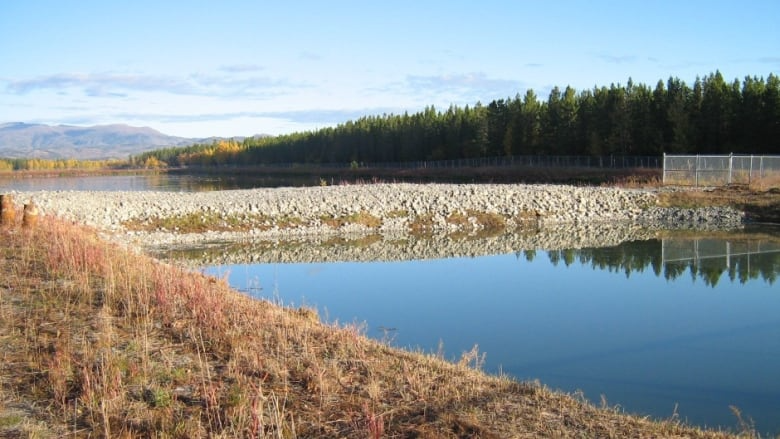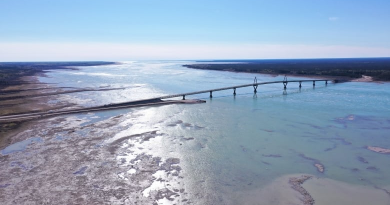Environmental impacts unknown after sewage system repair in Yukon capital

Water testing results could take up to 3 weeks, says senior technician
A major leak in Whitehorse’s sewage system was repaired mid last week, but the extent of the procedure’s environmental impacts are still unknown.
The Marwell Lift Station, which acts as a conduit for the majority of the city’s wastewater and sewage, was recently closed for a week to allow crews to investigate and fix the leaking pipe. During that time, the city opted to temporarily include bypass valves to dump a large volume of raw sewage into the Yukon River.
Acardio Rodriguez, the senior technician for water and waste services with the city, said roughly 6,700 cubic metres of wastewater was flushed into the river since repairs began.
The city commissioned a subcontractor laboratory to sample the river at three different locations, one upstream and two downstream from the station, to “identify what could be the potential impact of the discharge at the time,” Rodriguez said.
But the test results won’t be known any time soon. Rodriguez said it will take upward of three weeks for lab results to be available. Once ready, the city will submit them to Environment Yukon and the Yukon Water Board.
Protecting environment
Yukon government’s territorial laws are considered equivalent to the Wastewater System Effluent Regulations (WSER) under an equivalency agreement ratified in 2014.
The WSER aims to reduce threats to fish, fish habitat and human health from fish consumption by decreasing the level of harmful substances released into waters frequented by fish.
“Releases from overflow points, like in the case of the City of Whitehorse, are not covered by the agreement and are unauthorized under the pollution prevention provisions of the Fisheries Act,” wrote a spokesperson for Environment and Climate Change Canada (ECCC) to CBC News.
“The Act outlines the steps that must be followed in the event of an unauthorized release, including duties to notify, taking corrective measures and reporting,” read the email.
Water conservation notice ended Wednesday
The spokesperson wrote the ECCC enforcement officers are following up with the City of Whitehorse under the Fisheries Act.
“If alleged violations are discovered, enforcement officers take appropriate action in accordance with the compliance and enforcement policy for habitat and pollution provisions of the Fisheries Act,” read the email.
Rodriguez confirmed the City of Whitehorse followed all proper steps and informed Environment Canada daily about the status of the situation.
The Water Conservation notice for Whitehorse residents ended on Wednesday as the city confirmed the two holes leaking were successfully repaired.
The cost of the leaks and the repairs are also still unknown, said Svetlana Erickson, the city’s manager of financial services, at last week’s council meeting.
Related stories from around the North:
Canada: Thawing permafrost in Canada’s Northwest Territories releasing acid that’s breaking down minerals: study, CBC News
Finland: Finland investigates oil leak risks from Baltic Sea shipwrecks, Yle News
Greenland: Greenland accedes to UN treaty against mercury pollution, Eye on the Arctic
Russia: Rosneft-sponsored study says eco-impact at Franz Josef Land is ‘insignificant’, The Independent Barents Observer
United States: Alaska remote diesel generators win exemption from pollution rule, Alaska Public Media



